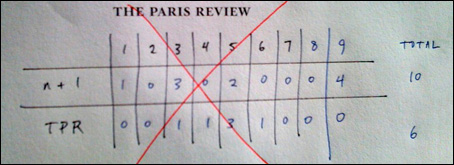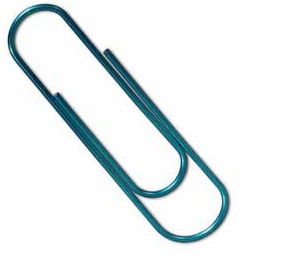There's a handful of apps that every techie in Silicon Valley has on Daughter in law Who Passed Out From Her Father in law’s Big Manhoodtheir phone: Google Maps, Lyft (#DeleteUber), Slack, Facebook, and Twitter.
But scroll past that first screen, and somewhere in their smartphone, you're gonna find a far lesser-known app: Blind. Crack it open, and you'll get a sense for whatever the tech community cares about at this very moment, via Blind's anonymous message board, where insiders dish dirt, spill beans, and trade advice.
In a channel exclusively available to Uber employees, you may see a discussion about sexism in the workplace. In a separate section called "Tech Lounge," you'll see a poll about Snap Inc.'s upcoming IPO. These screenshots were provided by members of the community, who requested anonymity.
 Original image has been replaced. Credit: Mashable
Original image has been replaced. Credit: Mashable You can go to any tech journalist or call up any investor on Wall Street to get their take on $SNAP, but if you want to know about how Silicon Valley—the engineers, the product managers, the members of human resources, the sales people, the marketers, etc.—feels about it? Blind is where you should be.
There's a caveat, though: You can't get in.
Blind is a private community only available to employees at a select number of tech companies. Employees at just over 100 tech giants (including Microsoft, Amazon, Uber, Facebook, Google, and LinkedIn) can join the app.
Blind declined to disclose overall user numbers. They say their endgame—and how they quantify success—is more about numbers vis-a-vis individual companies. For instance, one in every five Uber employees are on the app.
You can't simply try making a fake LinkedIn profile, either. All sign-ups are tied to each company's official email, and must be verified via that email address. But despite the connection, you're anonymous within the community—and to the app's creators, too—through patented technology.
Blind isn't a new app. It launched in the U.S. in 2015, but it got its start the year prior in South Korea, where the founders still operate the business. Now that it's starting to get more attention, Blind's basking in it—and expanding. The community's expanding rapidly, adding new tech giants regularly to the app (recently: WeWork, Medium, Postmates, and Blue Apron).
And of course, Uber's current series of PR flubs have driven its usage into high gear. Early last month, Uber employees were logging into the app about five times per day, with average sessions lasting about 14 minutes. On the Sunday that Susan Fowler Rigetti published her blog post through the that Tuesday, Uber employees opened the app 10.5 times a day, using it more than 16.9 minutes per session, on average.
Do the math: 10.5 logins, multiplied by 16.9 minutes? That's 177 minutes, per day, by user.
Over the last two years, Blind—which has earned a handful of press mentions in the past (TechCrunch, Forbes, Wall Street Journal)—has served as a trusty information source for thousands of Silicon Valley denizens. An engineer who recently joined Amazon said he found out about the app from his friend who works at Microsoft.
"He's telling me a lot about all this stuff going. I got curious. I heard about the culture, the pressure of the work environment," said the Amazon employee. "As a new grad, you don’t really know much about a corporate job or really Amazon at all. I wanted to get more information."
 Original image has been replaced. Credit: Mashable
Original image has been replaced. Credit: Mashable He could have turned to Glassdoor, or asked around Silicon Valley. But there's something special about Blind's real-time, highly-engaged, anonymous-yet-verified community.
The Amazon employee's reason for downloading Blind? Exactly what the team behind it was going for, says Alex Shin, Blind's head of operations.
"It's about eliminating the 'I wish I knew about this a year ago' or 'I wish knew about this two years ago.' We spend a third of our lives working, but we don’t really talk about the work," Shin said.
From South Korea, with secrecy
Blind's got a long history, much of it foreign. The company started with a group of employees from Naver, Korea's version of Google. They built and ran their own anonymous messaging forum, which Naver shut down. The team tried the idea again, this time, when they later worked at Ticket Monster, Korea's version of Groupon—and the app took off. It cast an even wider interest following a strange incident involving the heiress of South Korea's biggest airline.
With Blind entrenched in South Korea, the company set for entry into the U.S. in early 2015.
In the U.S., the founding team, led by Jung Young-joon, started with a beta test, using only LinkedIn employees, since they had several personal friends there, and thought it made sense, given the company's own messaging focus.
The beta flopped. But the app had the attention of Alex Shin, who heard about the project through friends of friends.
 Original image has been replaced. Credit: Mashable
Original image has been replaced. Credit: Mashable "A friend at Twitter said there was a super-cool anonymous app coming to the U.S. I thought, 'South Korea and social apps coming to the U.S. sounds like a really bad idea,'" Shin said, "but I was up for the challenge."
Shin signed on as an adviser to get Team Blind to try again in the states. He had worked at U.S.-based tech companies in Seattle and then the Bay Area, including at Google, starting in 2006.
Blind faced a major hurdle in the form of the app Secret, which left behind a bad rep for anonymous messaging in Silicon Valley. Secret was a similar anonymous messaging forum of techies, but quickly devolved into racism, hatred, and all-around negativity.
"I was on Secret while I was at a different company. All the comments were getting really, really negative over time, " said one LinkedIn employee. "There’s a very fine line, a tight balance they have to draw. These anonymous communities have to find balance."
On Secret, "all the comments were getting really, really negative over time."
Shin proposed taking the operation upstate after finding a positive response from tests with Facebook ads. "We cast a light blanket ad on Facebook about an anonymous app about work, targeted at tech employees, and we had a lot from Seattle," he said.
In July 2015, Shin and a coworker moved to Seattle and got a self-described "bachelor pad next to Amazon HQ." And then? "We started networking." There were calls and in-person meetings with Amazon employees. And on July 20, they launched Blind in the U.S., again.
Following the Facebook model
Amazon employees took to the app—quickly. Next, they opened the community up to Microsoft, and created the "lounge," where employees from both companies could talk to each other anonymously. Still, Shin—with two successful launches under his belt—didn't open the floodgates immediately, instead choosing to drive the business back down the West Coast. Facebook and Google soon followed suit.
The path followed Facebook's own model, in fact. Facebook was once a social network only open to elite, mostly Ivy League colleges. But don't expect Blind to do the same thing—at least not in the same way.
"Our focus in Blind is not about getting a bajillion users," Shin said. "Our focus, even as we grow, our focus is having siloed, unique communities that are very valued."
As Blind grew, it transformed into the place techies could go to chat about their jobs and also find out about the news—way before the tech press or their bosses would tell them formally.
"I found out about Blind when the LinkedIn acquisition [with Microsoft] happened. One of my coworkers told me that he heard about [the deal] two days before the official news," said the LinkedIn employee.
Lately, gossip around life at Uber has been a hot topic. "Recently there was an article about Uber. People within our company will talk about it, but we actually don’t know people as a whole at Microsoft or LinkedIn or Apple," said a Google employee.
Blind can also be an area for quick feedback on career moves:
 Original image has been replaced. Credit: Mashable
Original image has been replaced. Credit: Mashable "Some conversations are a little snarky, usually conversation that were timed relevant to announcements," he said. "It's a combination of having a company channel, and then, being able to talk to a ton of people at other companies."
"I have close friends at work, but even with those people, I wouldn't see these people sending those messages directly to people at work," the LinkedIn employee said. "It feels like talking to coworkers over a round of drinks."
Blind's bigger picture
Thing is? It's notjust your coworkers over a round of drinks.
Blind's still operated by a larger company. Shin cautioned against anything "Big Brother"-related. In fact, Blind designed the app to prevent those who work at the company themselves from knowing who joins.
Say, for example, you lose your password? There's no hope in getting it back. Once you're verified, you're in, and there's little communication with the employees at Blind.
"We’re totally anonymous. We don’t even know," Shin said. "Our goal is to respect the privacy of users, especially the private company channels. We’re not running any algorithms on there."
"We’re not running any algorithms on there."
There's some moderation, of course, but it's mostly by Blind's "flagging engine." If a post gets reported a couple times from users, it automatically comes down. That's what happened following a rumor posted on the "lounge" that 118 Uber employees had resigned following the company's all-hands following Susan Fowler Rigetti's blog post.
An individual will get kicked off Blind for a week, a month or up to eternity if they get flagged enough times.
"A lot of the other apps will be like, 'Hey, I'm Alex.' We don’t have want any of it. We have very minimal communication with our users. We don’t want to coerce," Shin said.
But how about making money? Right now, Blind's US branch is fueled off of having a lean operation and a Series A of venture capital funding, in the "single digit millions," TechCrunch reported. Participants include DCM, the same firm behind anonymous messaging app Yik Yak.
Blind's also ramping up another round, and plans to increase its team in San Francisco from four to ten employees.
And if their success elsewhere is any indication, they'll be hiring even more people in the coming months. In Korea, Shin characterized the business as "very mature," explaining: "We're pretty much in every industry in that country. We have about 20 percent of all white-collar employees."
As for revenue, Shin said they're weighing a couple ideas, but that it won't have anything to do with selling user data—you can hold Shin to that:
"We've never engaged in sharing any data. In fact due our patented anonymous infrastructure, we really have no data to sell."
"Maintaining the user anonymity of Blind," Shin reiterated, "is our top priority."
Featured Video For You
The most underrated entertainment of February is on our binge-list








